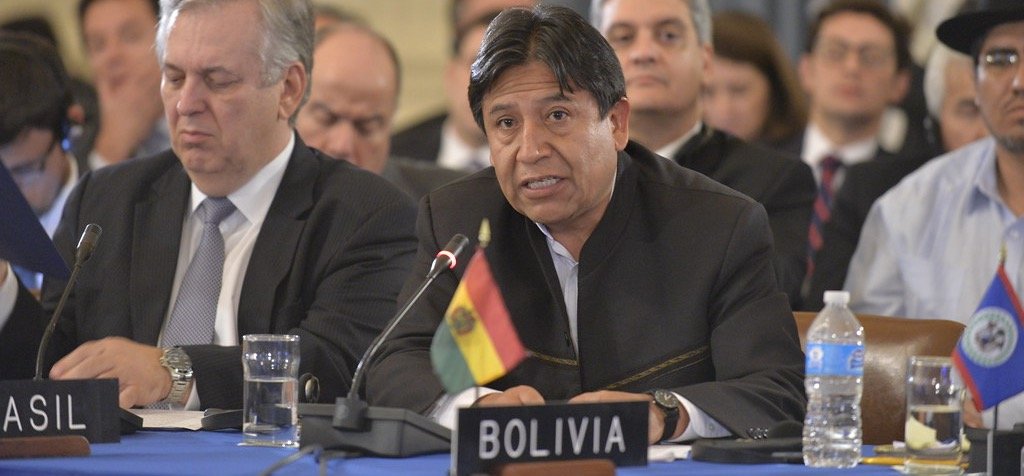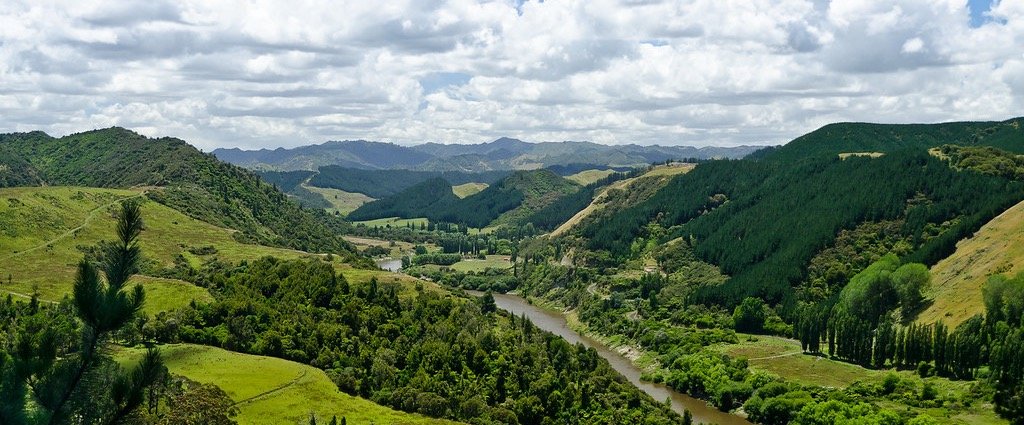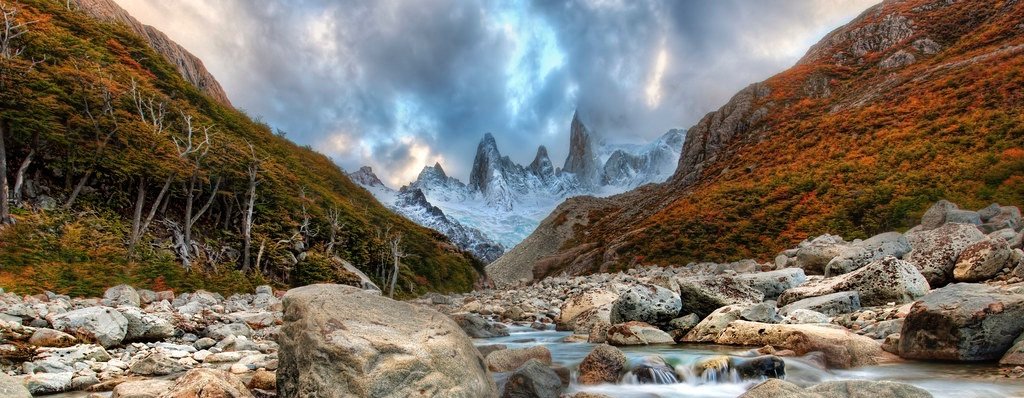“Today Bolivia and the world is experiencing a transition that is repeated every 2,000 years. Within the framework of the cyclicality of time, we go from no time to time, giving rise to the new dawn, a new Pachakuti* in our history.” – 8th of November 2020
These are the words of Bolivia’s newly elected vice-president David Choquehuanca from his inaugural address in November. Similarly to other state leaders offering words of hope to their people, he made a reference to the global pandemic, albeit quite differently than most political speeches. As a member of the Indigenous Aymara peoples of the Bolivian Andes, his speech is rooted in Indigenous cosmologies and languages. This recognition of Indigenous cultures by an Indigenous politician at the highest state level is rather unique in a world where many Indigenous peoples continue to be heavily marginalized and left out of the political sphere of influence. In doing so, Choquehuanca also challenges today’s dominant forces, stating that it is time for a new way forward:
“A new sun and a new expression in the language of life where empathy for the other or the collective good replaces selfish individualism.”

The global pandemic has taught us once again that the powerful rule of capitalism, individualism and extractivism is no longer tenable, as our economic systems are collapsing and social inequalities are only reinforced. Still most people cannot wait for things to go back to normal. Many Indigenous peoples might not share this wish, nor did they need a pandemic to realize that today’s status quo is no longer sustainable. For a long time, Indigenous peoples have fought against the intrusions of the Western world and its dominant systems. In doing so, they keep on dreaming for a better future for their children, living a different reality than that of today.
An example of this Indigenous reimagining is embodied by the concept of el buen vivir or vivir bien. As an el buen vivir advocate, Choquehuanca makes many references to this idea in his speech, considering it as the alternative the world needs today. Loosely translated, it means living well or the good life. However, it cannot be understood in individualistic terms of wellbeing, as vivir bien is all about collectivity. The term originates from the worldview of the Quechua people of the Andes, who use the expression sumac kawsay from the Kichwa language. This expression symbolizes the fullness of life, which can be found in community and harmony with both people and nature. In the Aymara language, it is called Suma Qamaña:
“We are in the full process of recovering our knowledge — the codes of the culture of life, the civilizing canons of a society that lived in intimate connection with the cosmos, with the world, with nature and with individual and collective life. We are in the full process to construct our suma kamaña from our suma akalle, which is to guarantee the individual good and the collective or communal good.”
Community is at the heart of el buen vivir. This does not only include humans, but also nature, animals, plants and other non-human beings and spirits. The idea is that one cannot live well when others are not, offering a critique on today’s approach to development and its market-driven nature. In Choquehuanca’s words:
“Let’s go together. That is why they tell us that we all go together, that no one be left behind, that everyone has everything and no one lacks anything. And that the well-being of all is the well-being of oneself,…”
On how to do this, vivir bien proposes a self-sustaining and non-accumulative economy in balance with nature, calling for a human-centred, local and small-scale food production. Furthermore, education is not a tool to create human capital, and interculturality is a key principle. It includes intercultural dialogue and challenges the legacy of colonialism, which has unjustly rendered non-Western knowledge systems as inferior:
“We are in times of recovering our identity, our cultural roots, our sake. We have cultural roots. We have philosophy, history. We have everything, we are people, and we have rights.”
El buen vivir also advocates Indigenous self-determination and plurinationality, calling for an inclusive, reciprocal and horizontal participatory democracy. It is about not making divisions, but seeing everything as interrelated:
“We children have inherited an ancient culture which understands that everything is interrelated, that nothing is divided and nothing is outside.”
The Indigenous movement has been so strong that vivir bien has even become a guiding principle for state policies in South-America. This has been the case for Ecuador and Bolivia, who included the concepts of el buen vivir in their constitutions in 2008 and 2009. An important aspect of these policies is the reciprocal and balanced relationship between humans and nature. This partnership with the Earth should form the basis for all governance and economic systems, arguing that nature and Mother Earth cannot be owned and should be protected. This has led to a new concept within international law, called Rights of Nature or environmental personhood. Both Bolivia and Ecuador have recognized Pachamama (Mother Nature) as a legal entity with their own set of rights, including it in their respective constitutions. This also sparked a number of cases on earth jurisprudence in other countries, albeit with their own interpretations, for example New Zealand where a river system was granted legal personhood. In the case of Bolivia, these Rights of Nature include amongst others the right to life, regeneration, biodiversity, water, clear air, balance, and restoration. Additionally, individuals or a group can plead on behalf of nature to ensure the rights are respected.

One does have to be careful not to present a romanticized and essentialist image of el buen vivir and how it is realized in practice. The reality is that there are many challenges to implementing vivir bien today, as both Bolivia and Ecuador are still heavily influenced by colonial legacies that perpetuate racist policies and attitudes. For example, many Aymara people in Bolivia still face discrimination despite the vice-president being of Aymara descent. Nor are these countries islands outside the sphere of influence of today’s dominant system, free and unhindered to create their path towards utopia. This becomes abundantly clear when looking at the tense relationship between the lucrative business of extractive industries and Indigenous land rights. Bolivia is still heavily dependent on the export of minerals, gas and oil, resulting in a continuous encroachment onto Indigenous lands. Earth jurisprudence does provide a growing internationally recognized tool and practice to hold states and multinationals accountable, supporting Indigenous peoples in their fight as guardians of the earth.
Albeit with its own set of challenges, el buen vivir does allow us to question and reconsider today’s reality, possibly offering a way out of the many problems we are facing today. Whether it be a looming mental health crisis as a result of the pandemic or the global issue of climate change, el buen vivir promotes a more holistic approach to healing and the restoration of nature and our relation with it. As 2020 is coming to an end, we are looking back to a year full of unexpected and challenging circumstances. As we are forced to stand still, many of us are given time for reflection. In these moments of doubt and uncertainty, it does become abundantly clear what really matters to us and what we want our lives to look like. Let us not forget this and take the next step not alone, but together.
“And the well-being of all is the well-being of oneself, that helping is a reason to grow and be happy, that giving up something for the benefit of the other makes us feel strengthened, that uniting and recognizing ourselves in everything is the pathway of yesterday, today, tomorrow and always of where we have never moved away.”
Written by Cecilia Uitermark
*A cataclysmic event separating eras in time. Coming back to the source. A return to the essence of the cosmos.

